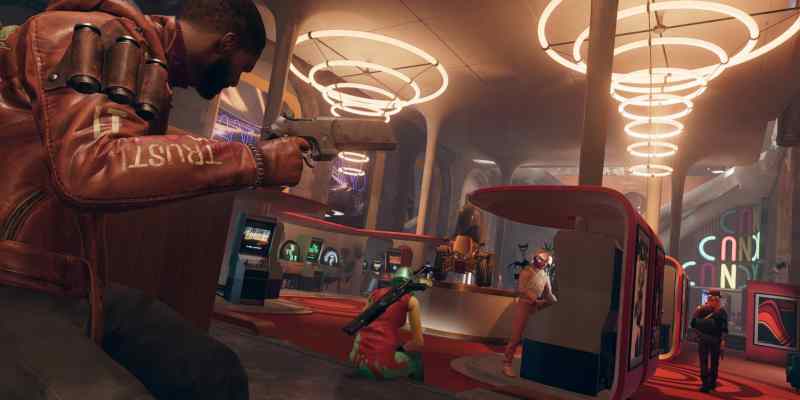Having recently attended a hands-off gameplay preview demonstration and roundtable Q&A of Arkane Studios’ upcoming FPS / immersive sim Deathloop, what struck me most was how violent it seems. Anyone who has seen the game in action can see how Arkane Studios is drawing from its experience with Wolfenstein: Youngblood to provide a faster, more shooter-centered adventure than Prey or Dishonored, but it still caught me unawares.
It comes down to the animations. Colt’s melee kills are visceral. He buries his machete in the back of oblivious NPCs with a fountain of blood. He twists heads into positions that seem anatomically impossible. He teleports across space to decapitate foes. Sure, you can argue that Colt is pissed off about being trapped in a time loop and having a giant target on him, but the brutal physicality is there from the very first kill, and it’s excessive.
Deathloop in Violent Preview
The Deathloop demonstration began with the opening section of the game. Without spoiling anything, Deathloop’s opening scene is at once intimate and confronting. You get a profound sense of things not said. Before you can begin to piece things together though, the scene ends and Colt wakes up on a barren beach with almost no memory of what’s past.
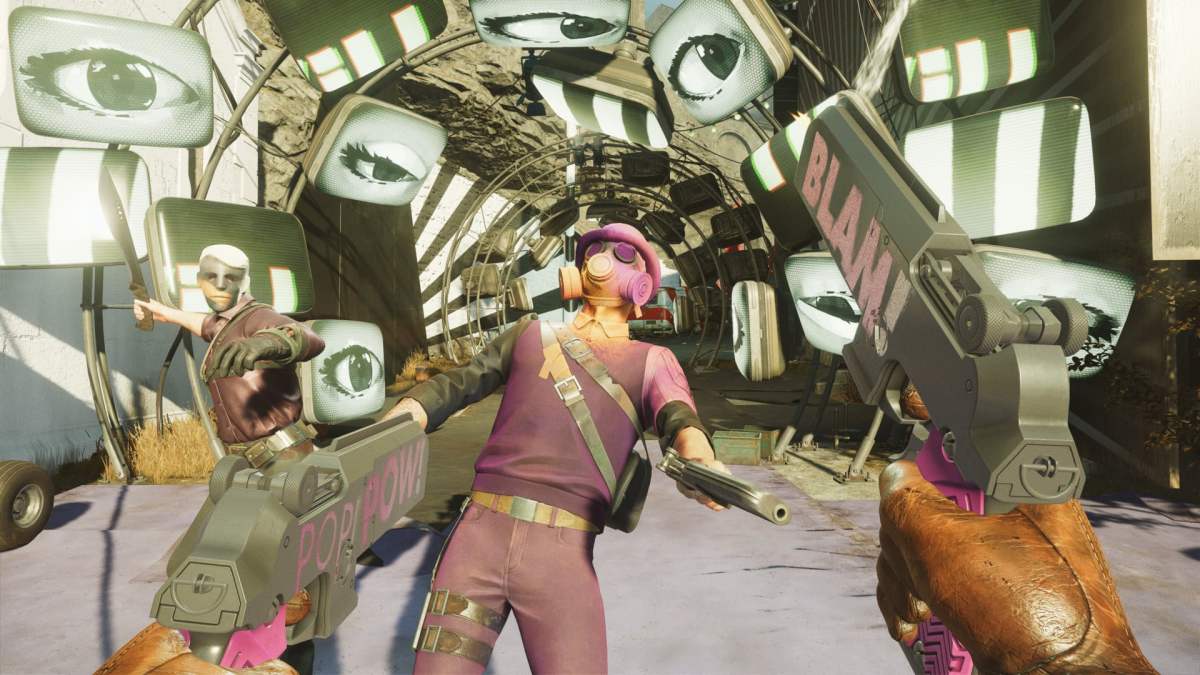
At this point, you have questions, but most are immediately wiped away by another one: Why is Colt seeing floating words?
In-game prompts to push the player in certain directions are hardly new, but Arkane adds novelty by embedding them in the game world. Not only do they guide Colt, but they respond to his questions, giving him and the player clues.
Yes, that means Colt follows in the trend of video game protagonists who talk to themselves far more than seems healthy, but his commentary throughout the demo feels unforced. At one point during the Q&A, game director Dinga Bakaba said the team has “managed to do something where those characters don’t talk like video game characters.” The comment bears out, with dialogue and monologues alike having a natural flow.
The introductory sequence concluded with Colt acquiring his first supernatural power, Reprise, which lets him “die” twice in a row without resetting the time loop. Cinematics are more compelling than I expected, and while Arkane may be leaning into roguelite design with Deathloop’s gameplay, the story has just as strong a hook as the murder of Empress Jessamine – if not as epic in scope.
After that, the demo skipped forward, dropping the player into the lurid Updaam district for a look at the moment-to-moment gameplay. It was intended to show off a bit of how the game is designed as a puzzle – “the Clockwork Campaign,” according to Bakaba, citing campaign designer Dana Nightingale, in a reference to one of Dishonored 2’s most memorable missions.
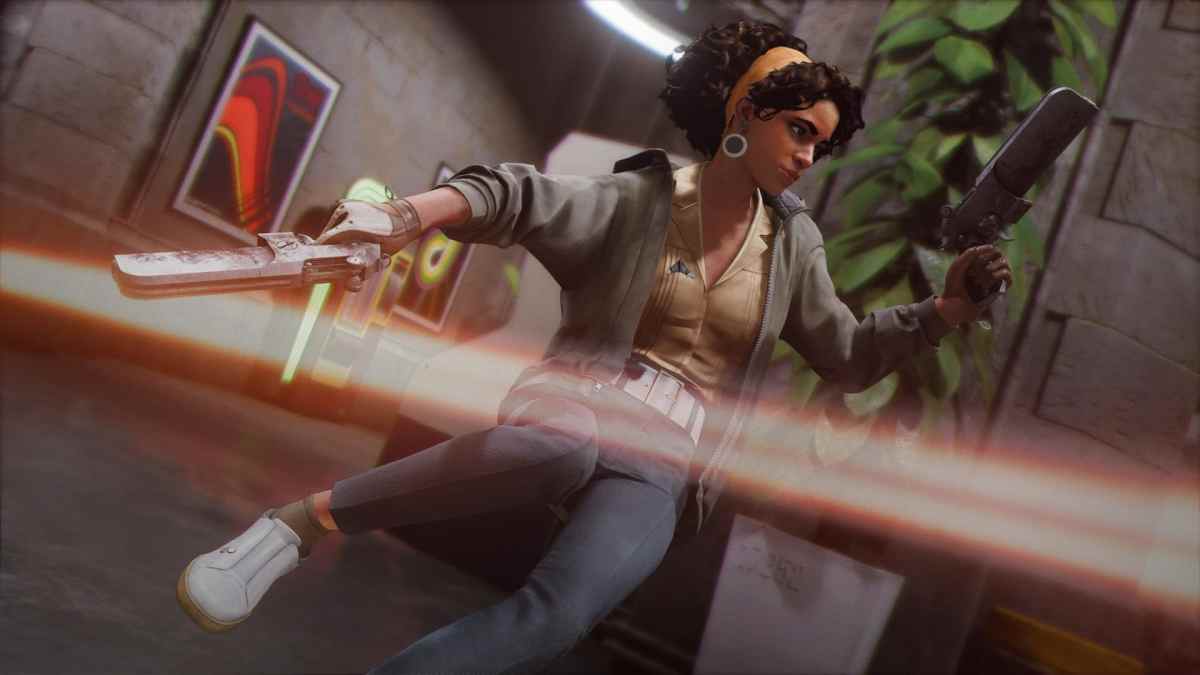
This is where I started to feel conflicted. Any public or semi-public demonstration of this kind needs to carry a sense of spectacle. It needs to excite the press so we can excite prospective players. There were a few moments where the immersive sim heritage of Deathloop was clear – in the use of gadgets to distract enemies, in the densely packed environments with hidden clues, in emergent opportunities to dispatch foes – but this demo was overwhelmingly a violent affair. Wolfenstein met Dishonored as Colt blasted away indiscriminately with a destructive arsenal of upgradable weapons while Blinking Shifting between points and making use of other powers, like Karnesis to throw enemies about like ragdolls or Domino Nexus to link NPC fates.
On one level, it was exciting. If you’ve ever wanted to love Dishonored or Prey or Deus Ex but found the sneaking and the difficulty in dealing with lots of enemies at once torturous, Deathloop is for you, based upon this preview. It provides scope to be a breakneck roller coaster of a game, with a huge arsenal, upgrades to make Colt deadlier, a stripped-back approach to resource management, and – of course – those powers.
Meanwhile, Updaam is an art deco-infused urban district where the wolf-masked Aleksis Dorsey throws his party. As you’d expect from Arkane, the area has a cohesive, lived-in feeling that almost makes you wish you could take a tour and learn the history behind the stones and lose yourself in the local culture. Speaking to that, the game’s art director, Sébastien Mitton, alluded to a fleshed-out history:
“We were based on the Faroe Islands, which are attached to Denmark and above Scotland, because of their visual aesthetic, black sand, jagged cliffs, a lot of tall grass. It was very interesting, visually. … And we also invented a timeline on the island before the game takes place, so everything that takes place before, which is going to inform visually what happens and give a soul to the island.”
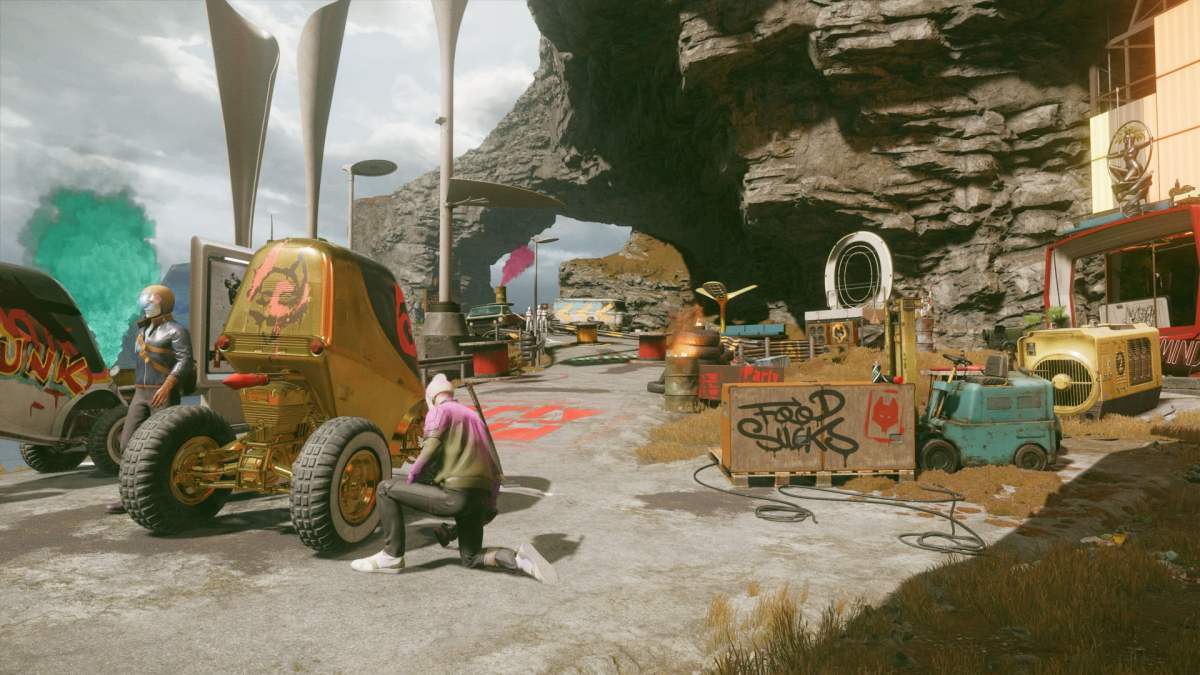
While we didn’t get to see that history bleeding into the present, the demo did show off some nonlinear game design in its different ways for players to approach the target. On one hand, there was the guns-blazing approach. On another, a more circuitous route to learn Dorsey’s schedule and take advantage of it to deliver a stealthier, more creative kill.
Seeing that reinforced the notion that Deathloop descends pretty directly from Dishonored. Beyond the gameplay design, the 1960s-inspired neon gothic aesthetic of Updaam could readily be mistaken for a post-industrial Dunwall.
It’s one of four locations in the game, each of which can be visited at one of four times of the day (morning, noon, afternoon, and evening). Each time period changes the location, with different areas accessible. Even though those temporal divisions exist, there’s no day/night cycle. Time only moves forward when you move between districts, which gives you a considerable amount of freedom in how you approach the game.
But not too much. Bakaba was emphatic that you can’t beat Deathloop by accident. Colt’s mission is to eliminate eight key characters called Visionaries to break the time loop. “All along this campaign, you will be figuring out how to do that,” Bakaba said. “It’s not as much something that you can stumble upon randomly; it is something that you will have to go through the story to be able to put in place and then execute.”
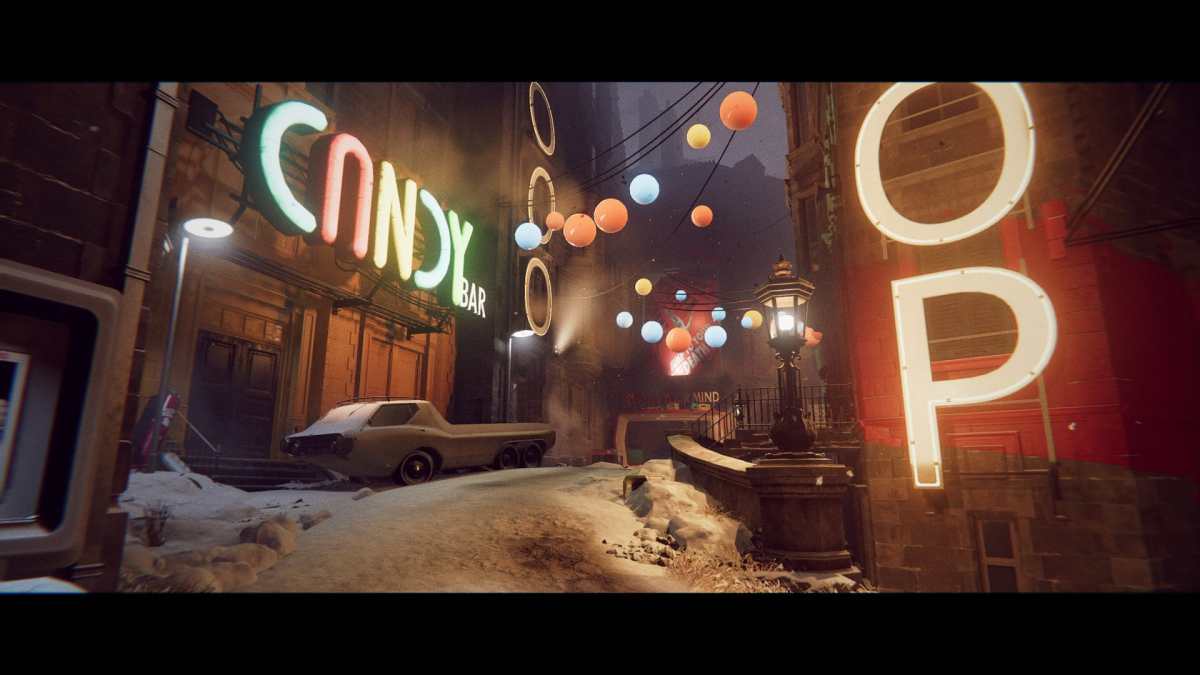
The “Two Birds, One Stone” trailer gave an example of how you can manipulate events to bring the Visionaries together. Bringing them all together is more intricate, with only one solution, and Bakaba pegs the total expected playtime to be somewhere in the range of 15-to-20 hours.
I put the question to Bakaba of what has most excited him about working on Deathloop. His response is, perhaps, the expected one: “I think it’s the fact that it’s quite a unique game… It’s very, very, very rare that we get the opportunity to work on something very fresh. I think there is a lot in this game that is quite unique.”
He cited lessons about design and dialogue from What Remains of Edith Finch and Firewatch, concluding, “It’s nice to be able to see a big game like this with ideas that are sometimes only explored in indie games. I think that’s something that I’m very grateful that we were able to work on something like this… We are trying to enjoy it and to make something that people will remember for sure.”
It’s strange. Nick Calandra and I attended separate Deathloop preview events. He came out the other side more excited, whereas I’m more conflicted than I was going in. There’s no denying there’s a lot to be excited about. Deathloop is undeniably an Arkane game – one that’s more approachable than ever. There’s a promising narrative, an incredibly intricate design, all the options you could possibly want, and the undeniable indie influence.
But I just keep coming back to the centering of extreme violence and feeling a little put off by it.
